Anti-Appropriative Resources for the Self-Taught Witch*
*and other spiritual practitioners
Hi! This post is too long for email :) If you want to read the whole thing, make sure to go online or use the Substack app!
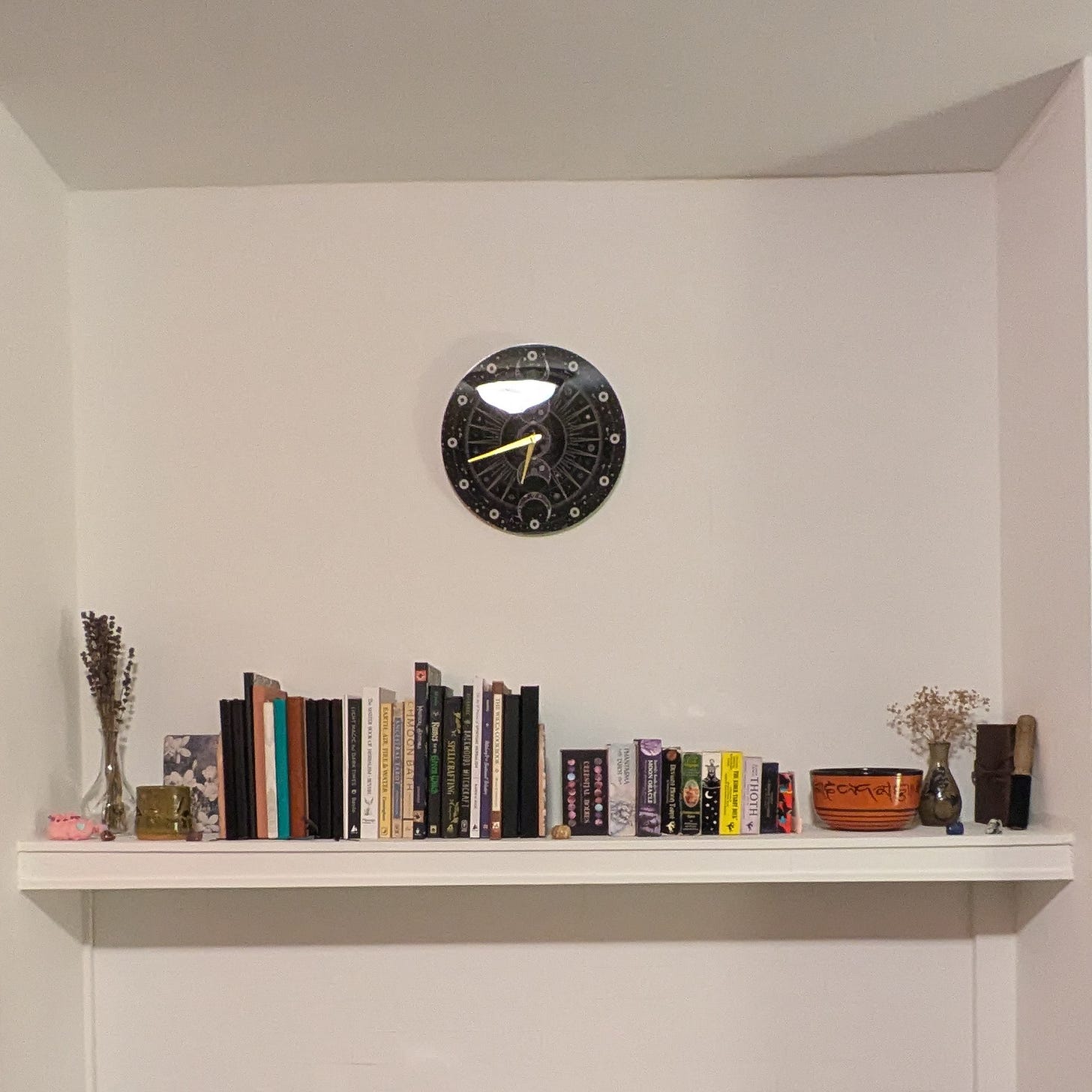
Introduction
Practices and beliefs can never exist in isolation. We are always situated within time, space, and lineage, learning what to do from those who came before us and those who surround us. I always had an interest in knowing why things are the way they are, having grown up in poverty and intuitively sensing that the systems in place were not ideal for personal and collective thriving. I then spent most of my intellectual years seeking to understand the underlying threads that tie things together and what can be done with the threads that are worn, frayed, and keeping us trapped in broken cycles. Luckily, we now exist in a time where society is bursting at the seems, and it doesn’t take much searching to see what isn’t working. With collective effort, we can weave something new with what remains.
When I began cultivating my spiritual practice in 2021, I was drawn to the ritual aspect of witchcraft. It helped me create a sense of stability as I navigated my mental health symptoms and searched for inner peace. It reconnected me with my inner intuitive child and facilitated the release of generational traumas from my Appalachian working-class lineage. Growing up, I was raised loosely protestant and baptized Lutheran, and I broke away from the church and its teachings around the age of 14. Then, I spent years in an atheistic nihilism that intensified through college as I struggled with severe mental health disorders and dove into studies about the history and construction of white supremacy. After graduation, I was living in an emotionally unsafe household surrounded by addiction. It wasn’t until I took the risk and debt of living alone with my cat Buttons during the pandemic that I was able to really dive into the trauma cycles I was living, and begin to reassess my belief systems.
Before I could light my first candle with intention, I knew I had to gather tools to navigate a pop-spiritual landscape that is inundated with capitalist ideology and appropriative practices. You can’t necessarily Google “how to be a witch” or scroll witch-tock and trust everything that comes up. Discernment is key, especially if you don’t come from a spiritual lineage outside of organized religion. Luckily, I already knew I had a strong intuition. I started by seeking resources based on anti-appropriative ideology and accessible, secular practices. Another struggle I had with the pop-spirituality movement is the language people use in their spells and rituals. I can’t just repeat a corny incantation and actually believe in what I’m doing. I had to learn how to write my own rituals, and figure out what language resonated with what I was trying to accomplish.
Ultimately, the best resource we have is our local community. If you want to start weaving together your own spiritual practice, go into brick-and-mortar occult shops in your region and talk to the people you meet there. Browse the books they have on offer and ask questions about the materials on sale. One thing to look out for is how stones and crystals are sourced - these are probably some of the most capitalist-driven spiritual tools that are not required to have a spiritual practice. Do research on stones and crystals before buying so you get a general idea of where they are found and how ethically they can be sourced (I’ve often checked The Crystal Council for quick facts). Of course, it’s hard to practice magick/witchcraft and not find yourself in possession of at least a few crystals. Use your best judgement and don’t think you need to have a certain crystal in order to achieve your goals.
To help you along your journey, I have curated a list of zines, books, Substacks, and podcasts that I have found extremely helpful in honing my spiritual practice. One of the most important things I learned early on is to take what resonates, and leave out what doesn’t. I was relieved to find that you don’t have to actually go out and buy materials in order to practice magick or witchcraft. What you need already surrounds you. Your favorite spices, your comfort objects, the breeze, and the soil outside can all be used with spiritual intention. The beauty of spirituality is in how mundane it is. The only thing you truly need is a notebook to keep track of your work, and the openness to change your beliefs and see the world anew.
Anti-Appropriative Resources
Although they may not label themselves as such, these are all resources I have used to create an anti-appropriative spiritual practice. To be anti-appropriative means to select your rituals and tools with that intention, respect the boundaries of closed practices, and have a willingness to change if you learn something you’ve been doing is inconsiderate of or stealing from marginalized/colonized communities. It is an ongoing practice that takes daily commitment to doing no harm to others through your spirituality. Especially for white practitioners, it is important for us to critically think about our traditions and what those traditions symbolize. It is okay to release or change practices that are grounded in racism and similar harms, even if they are considered “traditional.”
Books & Zines
Witches & Pagans from the Frame of Whiteness and Witches Pagans, and Cultural Appropriation
These two zines are a great introduction on ways to not only avoid cultural appropriation as a white witch, but to develop an actively anti-appropriative practice. I notice that they are now sold out at the links I provided, so feel free to message me if you want me to send you photos!
Restoring the Kinship Worldview: Indigenous Voices Introduce 28 Precepts for Rebalancing Life on Planet Earth by Wahinkpe Topa (Four Arrows) and Darcia Narvaez, PhD
Our spirituality informs our worldview. Although not a book about magick or witchcraft per-say, this text has been instrumental in helping me decolonize my belief system and foster a deeper connection with the living world around me. What is anti-appropriation if not also decolonization? If you value decolonization and returning to the wisdom that has kept us alive for hundreds of thousands of years, then this one is for you!
Revolutionary Witchcraft: A Guide to Magical Activism by Sarah Lyons
Written from the perspective of a white witch protesting the Dakota Access Pipeline with indigenous communities, this book goes through the fraught history of the term “witch” and how we can utilize our practice for revolution and social justice. I’ll definitely be reading this one again!
Spellcrafting: Strengthen the Power of Your Craft by Creating and Casting Your Own Unique Spells by Arin Murphy-Hiscock
If you want to start crafting your own spells, this book has all of the basics! From correspondences, to timing, to casting circles and setting intentions, it covers everything in a secular and accessible way. Most importantly, it emphasizes doing what works for you with things in your household over going out and buying materials.
Ancestral Tarot: Uncover Your Past and Chart Your Future by Nancy Hendrickson
Tarot plays a major role in my spiritual practice, and this book was huge in helping me utilize the tarot to connect with my lineage and ancestors! I haven’t even gone through the whole book yet, but I would highly suggest this if you are interested in connecting with your ancestors as a part of your practice.
Runes for the Green Witch: An Herbal Grimoire by Nicolette Miele
I would be remiss to not uplift the work of a local Pittsburgh witch! Although I don’t often utilize runes, Nicolette has written a wonderfully comprehensive guide to each rune, correspondences, and ways she connects with the runes. An absolutely lovely read if you want to incorporate more signs and symbols into your work. Also a great way to get into sigil magick!
The Art & Practice of Spiritual Herbalism: Transform, Heal, & Remember with the Power of Plants and Ancestral Medicine by Karen M. Rose
An important aspect of anti-appropriative spirituality is engaging with wisdom shared openly by Black and Indigenous spiritual practitioners. Compensating them for this work and giving credit where credit is due is huge! This book on herbalism by Karen M. Rose not only offers spiritual information about different herbs and plants, but also covers folk stories, mythology, and lore about different archetypes and deities that can help you connect with the plants. Plus, lots of easy recipes for an accessible entry into herbalism!
Backwoods Witchcraft: Conjure & Folk Magic From Appalachia by Jake Richards
Another way to foster an anti-appropriative practice is to turn to folk magick from your region that has been consensually and openly shared by a heritage practitioner. Jake Richards offers this for his southern region of Appalachia, with plenty of family stories interwoven with the rituals and spells he grew up with! Even if folk magick isn’t for you, it’s a great way to connect with what others have been doing to survive in these regions for generations.
Mystical Stitches: Embroidery for Personal Empowerment and Magical Embellishment by Christi Johnson
I have more recently started incorporating embroidery into my spiritual practice and I am so excited for the doors it is opening for me! This book has been a great resource for me as I step into a whole new era of magick for myself. I would highly suggest this for those of you who enjoy working with stitches and fabrics and want to put more intention into those arts!
Light Magic for Dark Times: More than 100 Spells, Rituals, and Practices for Coping in a Crisis by Lisa Marie Basile
Witchcraft for Emotional Wisdom: Spells, Rituals, & Remedies for Healing by Paige Vanderbeck
Moon Bath: Bathing Rituals for & Recipes for Relaxation and Vitality by Dakota Hills and Sierra Brashear
If crafting your own spells isn’t for you, or you need some spiritual inspiration, then these three books have you covered! In these, you can find accessible spells and rituals that feature a variety of materials and tools. These are especially helpful books for shadow work, inner healing, and navigating chaotic times.
Substacks
Astrology for Writers was the first astrology Substack I subscribed to. I love Jeanna’s weekly forecasts and she has cultivated a wonderful discord community! I respect the perspective and nuance she offers in her teachings. Her new podcast with Bee Scolnick and Meg Jones Wall is also suggested in the next section.
Our spiritual practices and beliefs extend further than the rituals we perform in isolation. Cosmic Anarchy is a great resource for collective imagining and decolonial work, which are inherently spiritual pursuits.
Gina Wisotzky is such a fun and genuine tarot practitioner! I love listening to her forecasts as much as I love reading them. I always find myself pulling cards for myself that she pulls for collective readings, which really helps me interpret my readings in a larger framework. Another great online community can be found here.
No Bad Cards is a newer Substack by Lindsay Mack, whose podcast I had already been listening to for a couple of years (which can be found in the recommendations below!). I couldn’t sing Lindsay’s praises enough. Her trauma-informed practice is always considerate of diverse identities and experiences.
Although not about witchcraft, Life is in Love with Me by Amara Amaryah is a beautiful publication about living a life that centers ease and rest, which is a spiritual practice in and of itself. Amara offers gentle and affirming medicines and I love learning more about her and her nomadic lifestyle. You can also find her at the Easeful Place! I truly love and respect her commitment to building a digital community that radically centers gentleness.
I participated in Ayanda’s Creative Kinship workshop series, which completely transformed how I understand my spiritual relationship with creativity and how I can tend to/honor my creativity. I adore her energy and teachings and recommend for all the good reflections and energy she has to offer!
Podcasts
Tarot for the End of Times with Sarah Cargill
Sarah Cargill, founder of Snakeskin Tarot, is an absolutely divine teacher who I have utmost respect for. This podcast goes through each of the Major Arcana cards in the Rider-Waite Tarot deck and discusses their symbolism, mythology, and interpretations to help us navigate “Epochs of change and instability.” Sarah is vulnerable when she talks about her own journey with each of the cards, and centers the experiences of queer, Black femmes. A must-listen for all tarot readers!
Call Your Coven: Practical Advise for Nonsensical Times with Bee Scolnick, Jeanna Kadlec, and Meg Jones Wall
Call Your Coven is a NEW podcast that ties together numerology, astrology, and tarot to offer collective monthly readings and other spiritual deep-dives! As someone who utilizes all three of these modalities, this podcast couldn’t have come at a more perfect time for me. I also suggest Jeanna Kadlec’s Substack above!
Tarot for the Wild Soul with Lindsay Mack
Lindsay Mack is the founder of Soul Tarot, which is a trauma-informed tarot practice that she developed through her personal healing journey. Lindsay’s podcast is so gentle, affirming, and wonderfully vulnerable. I just find her voice to be so soothing! A great one for monthly collective readings and to scroll around to find deep-dives into particular cards and archetypes. She also recently started a Substack, which I recommended above!
The Fat Feminist Witch with Paige Vanderbeck
Although no longer making new episodes, this is a great show to scroll around and get little deep-dives into different aspects of spirituality and witchcraft. I also suggested one of Paige’s books in the above list!
About that Life with Nicole and Joi
Another podcast that is no longer releasing new episodes, but a good one to scroll around to get introductions into different topics around witchcraft and spirituality! This is a good one to peruse to find what might interest you in your own practice.


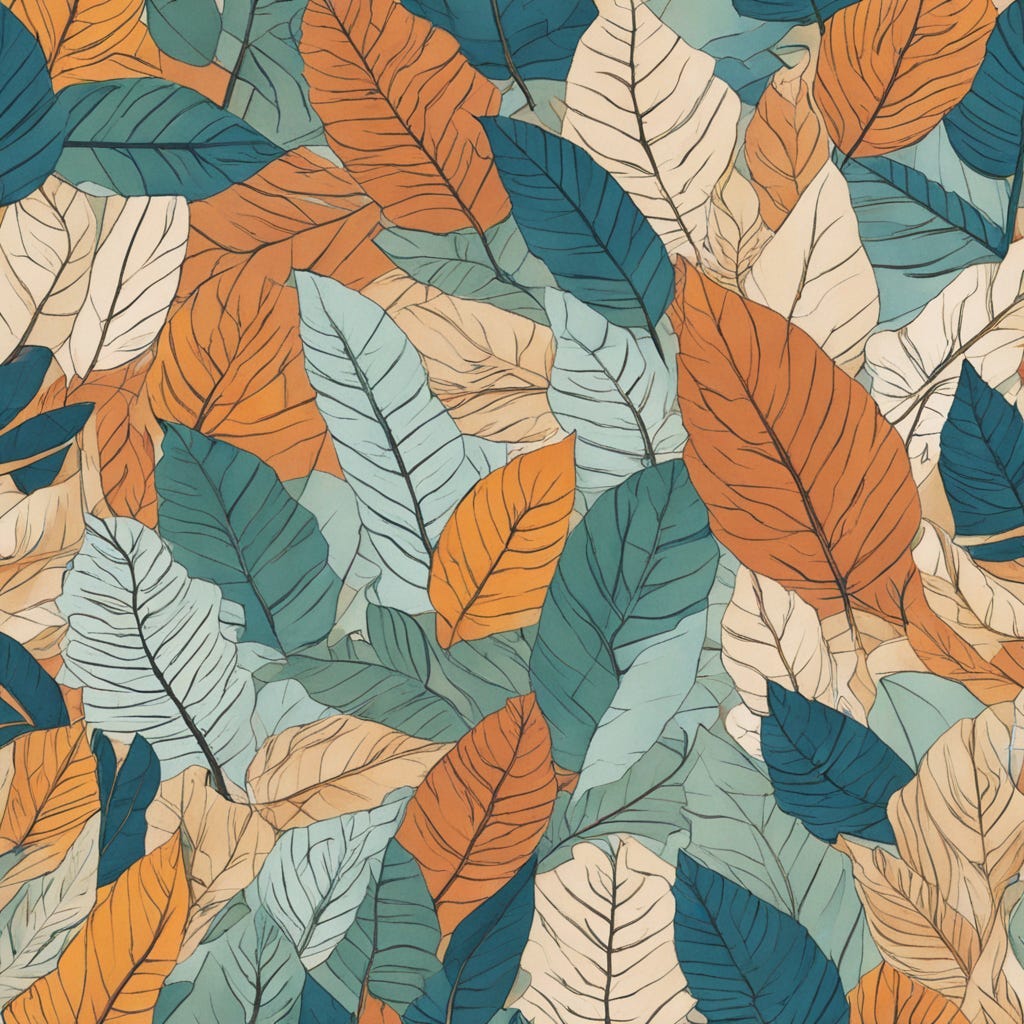
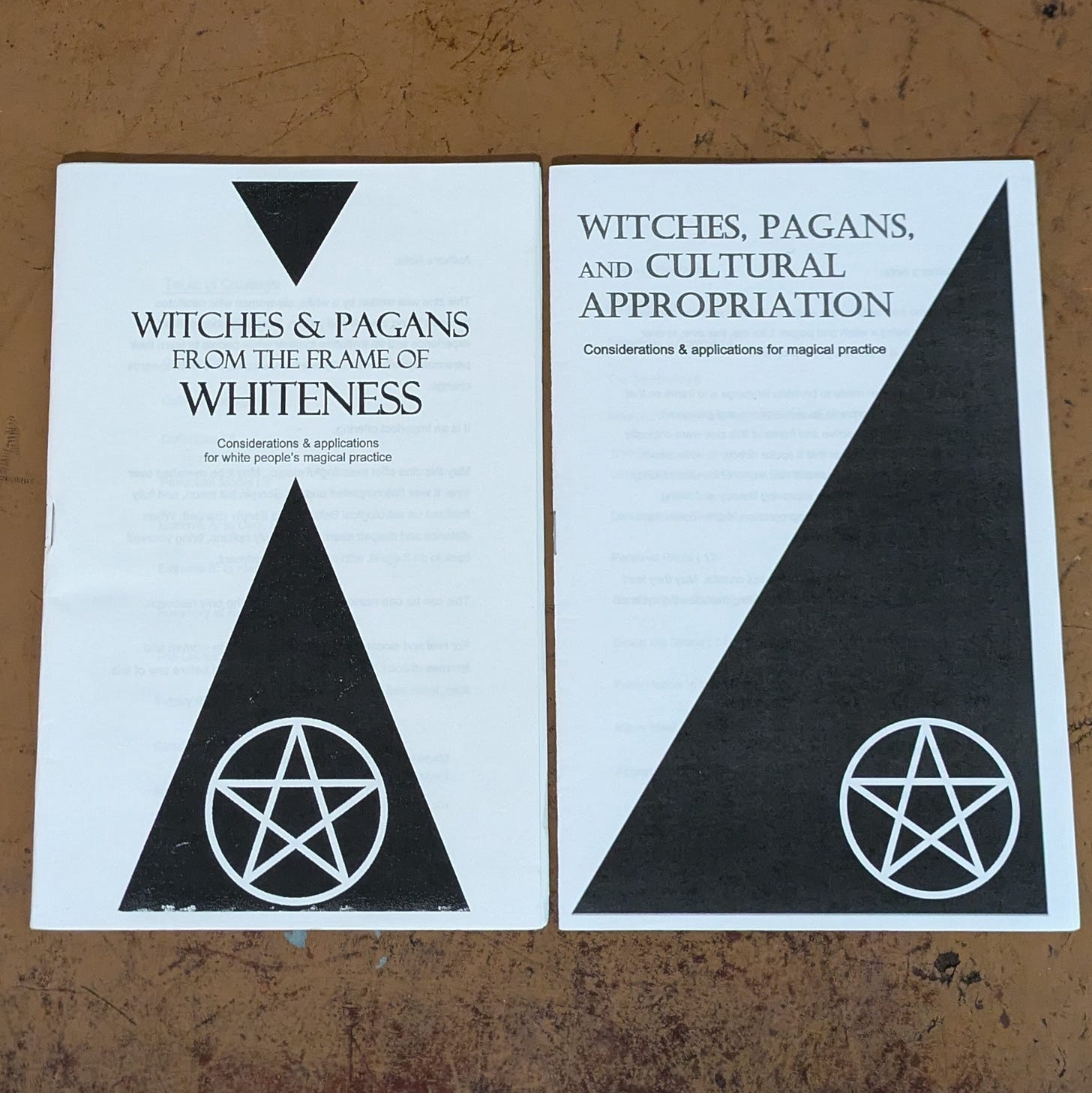
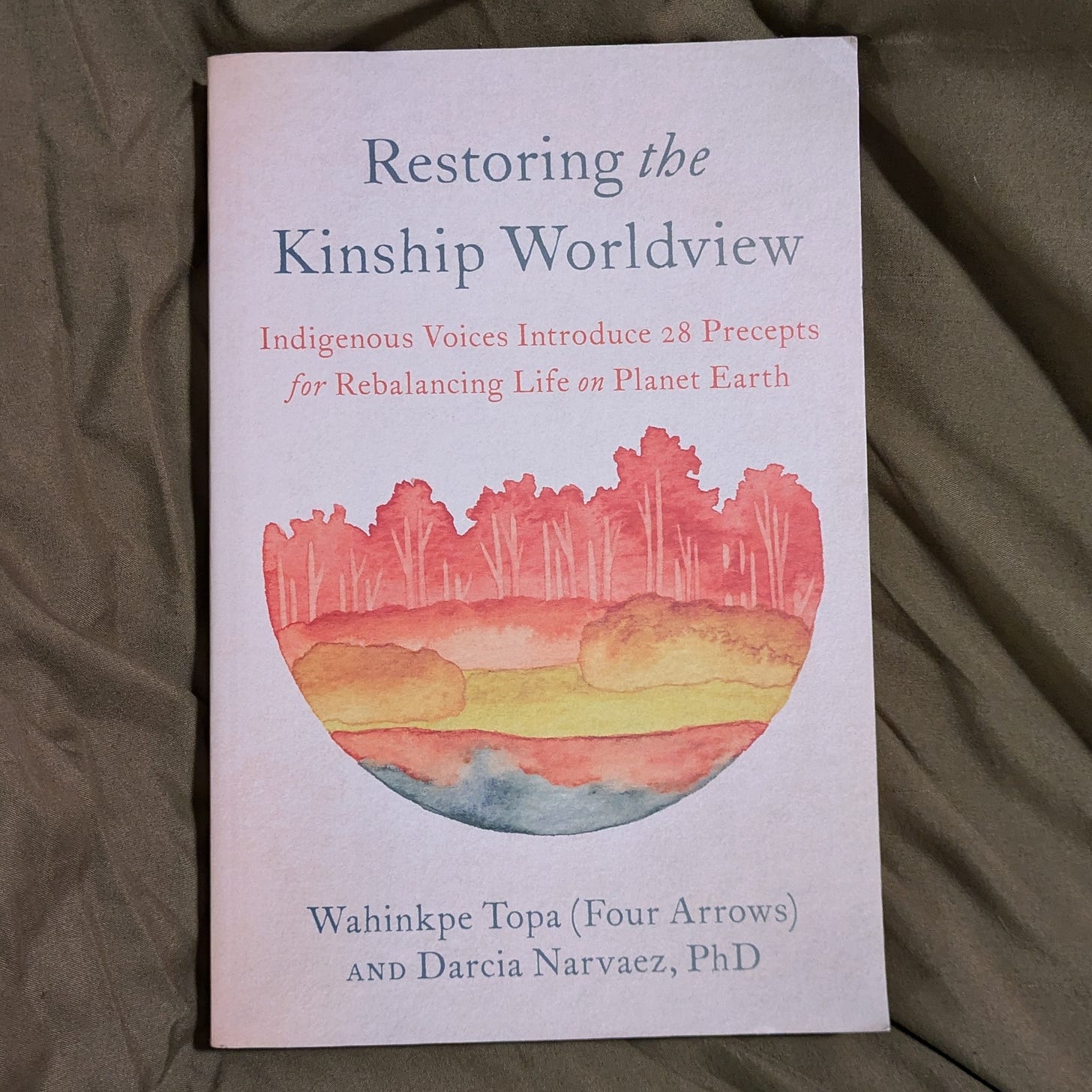
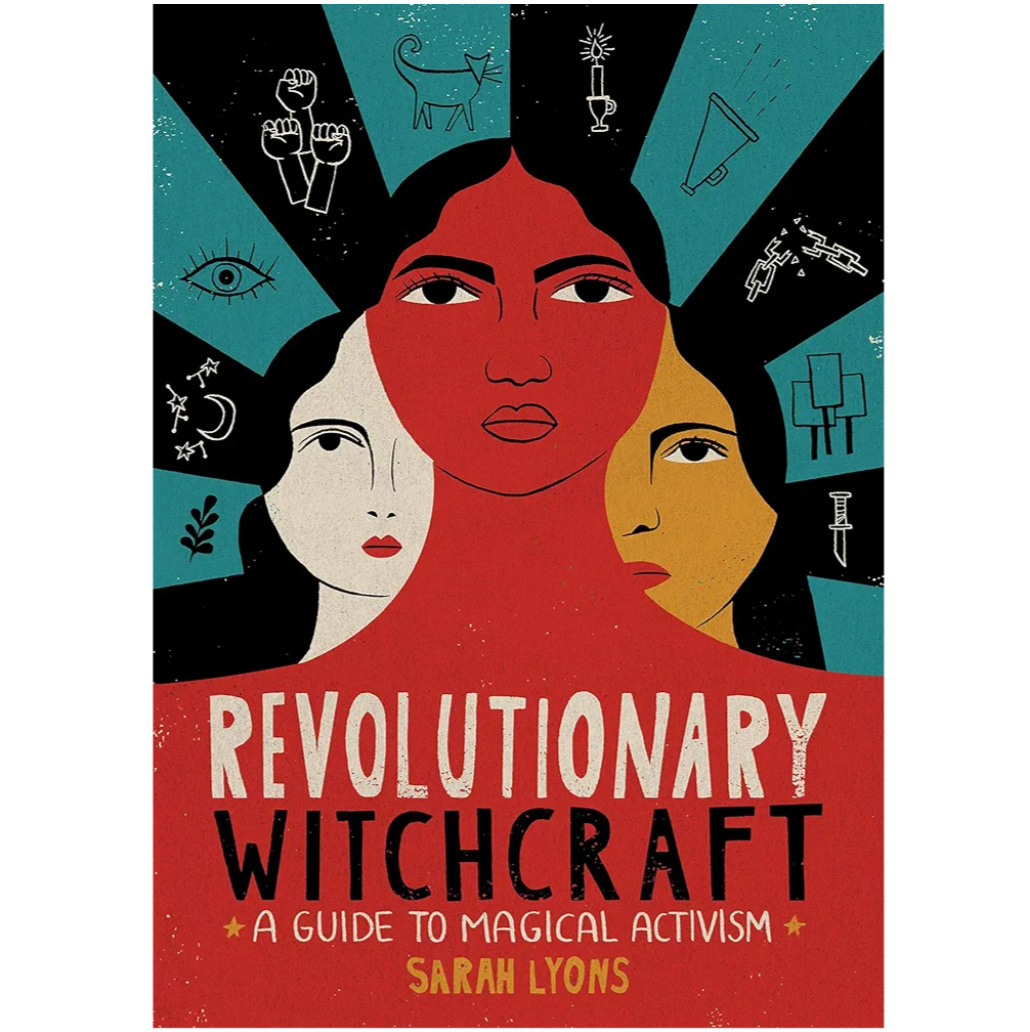

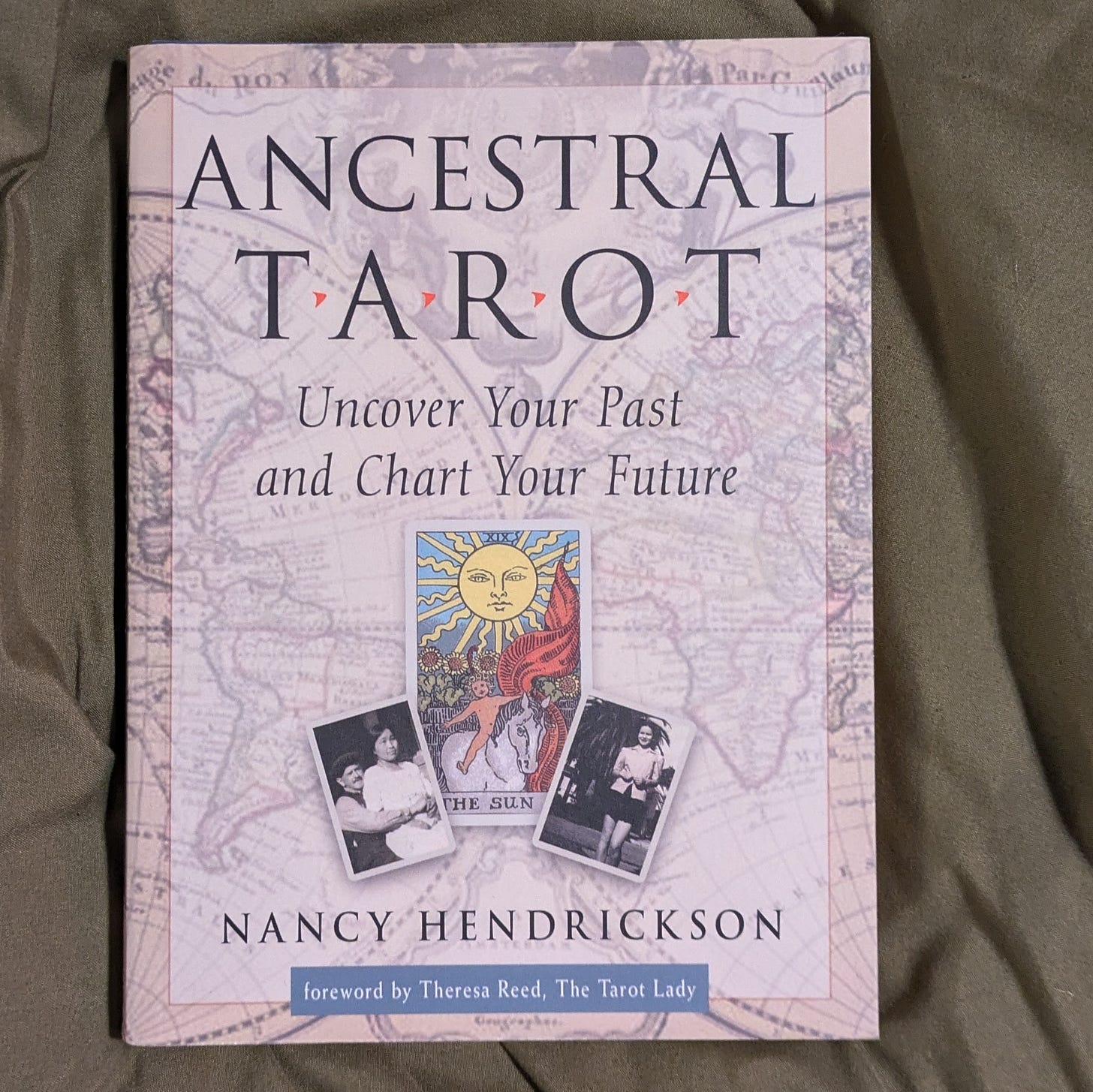

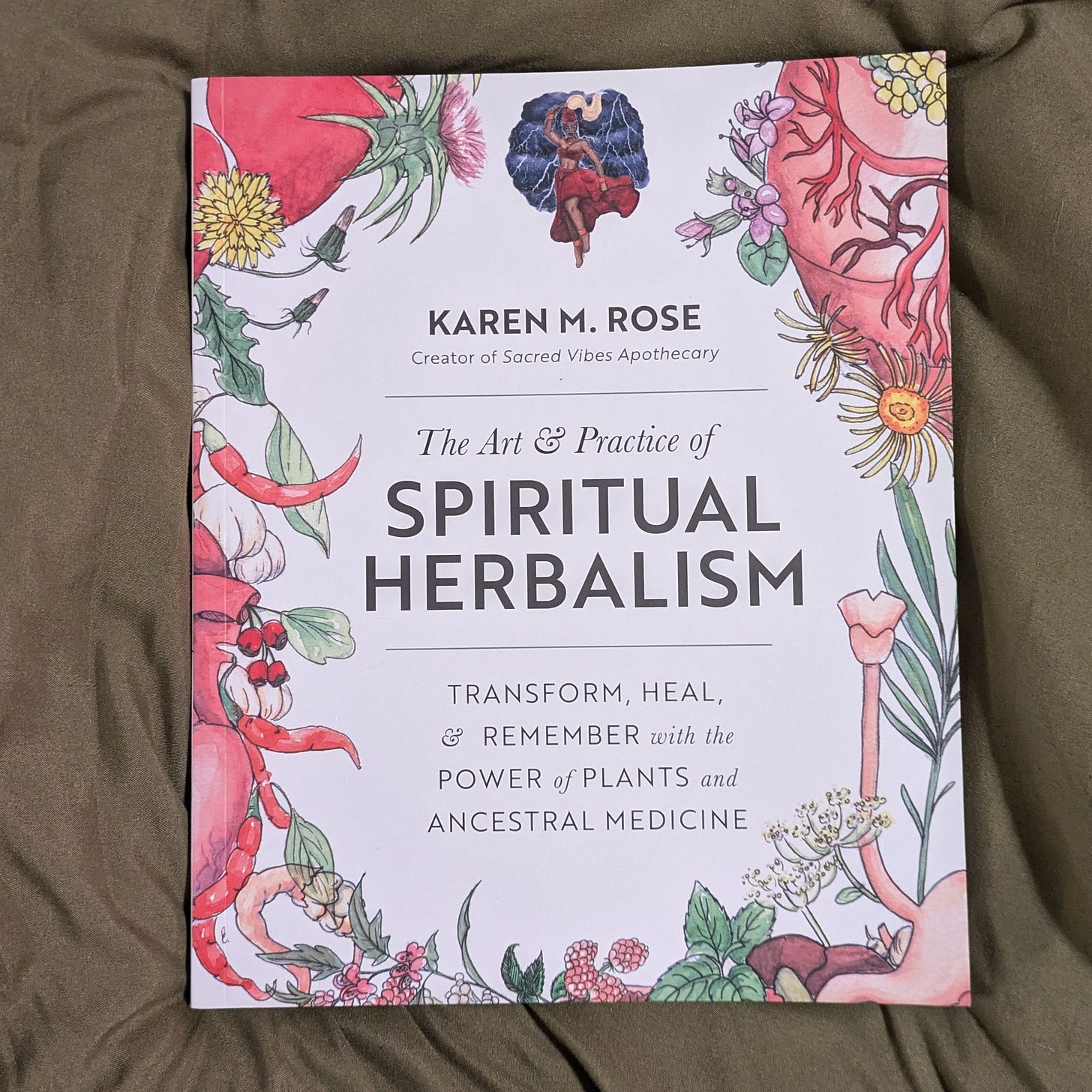
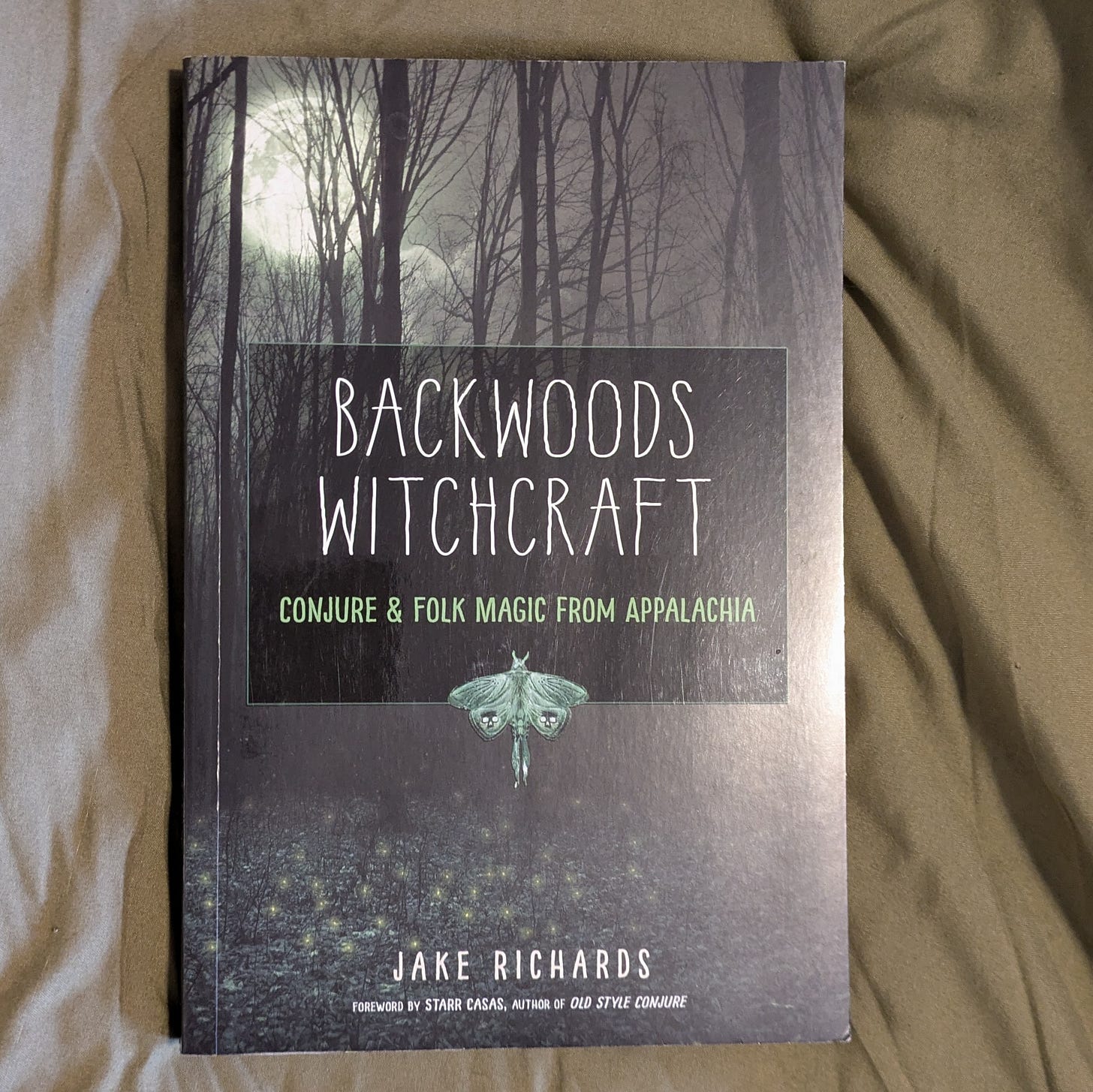
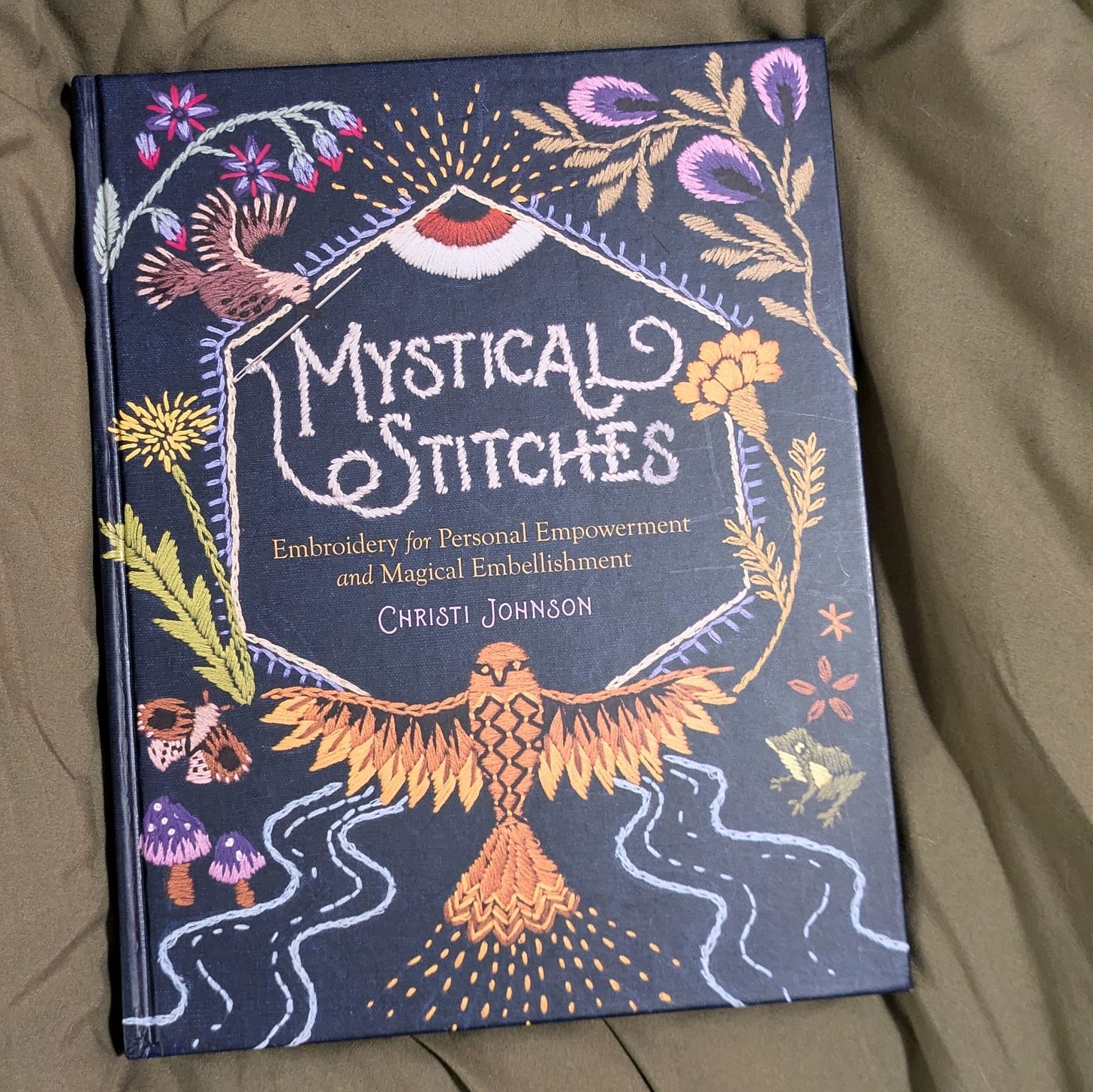
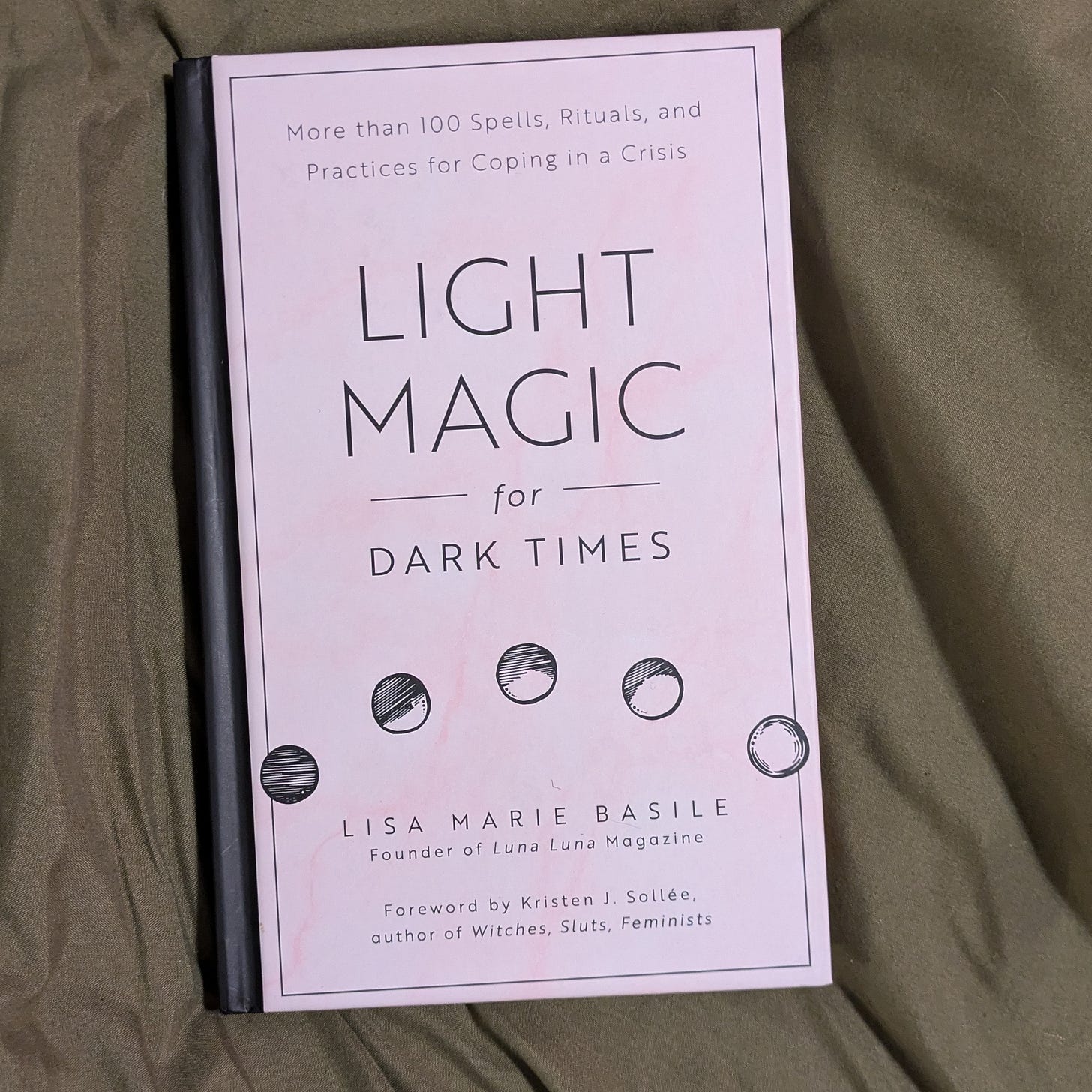
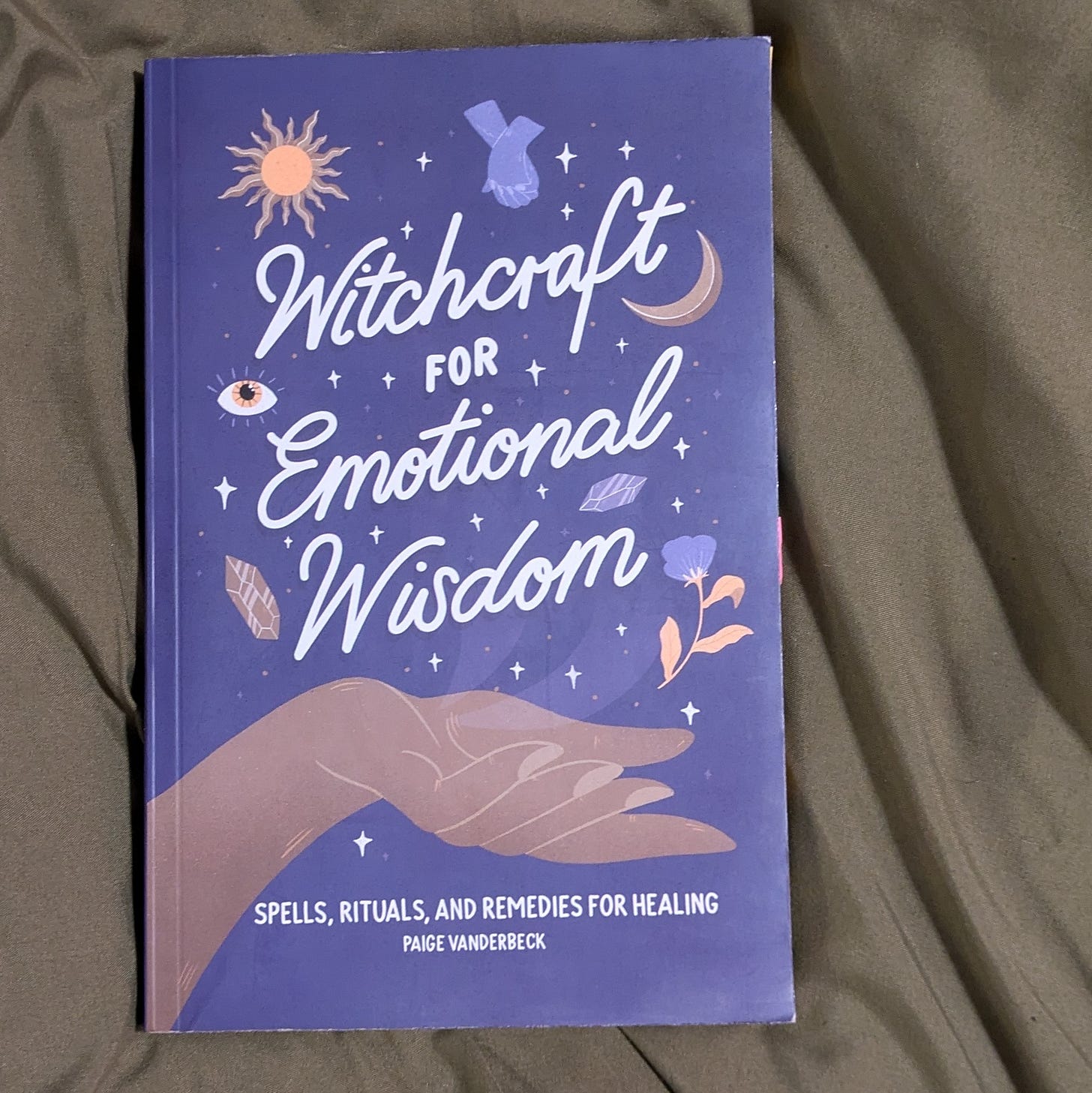
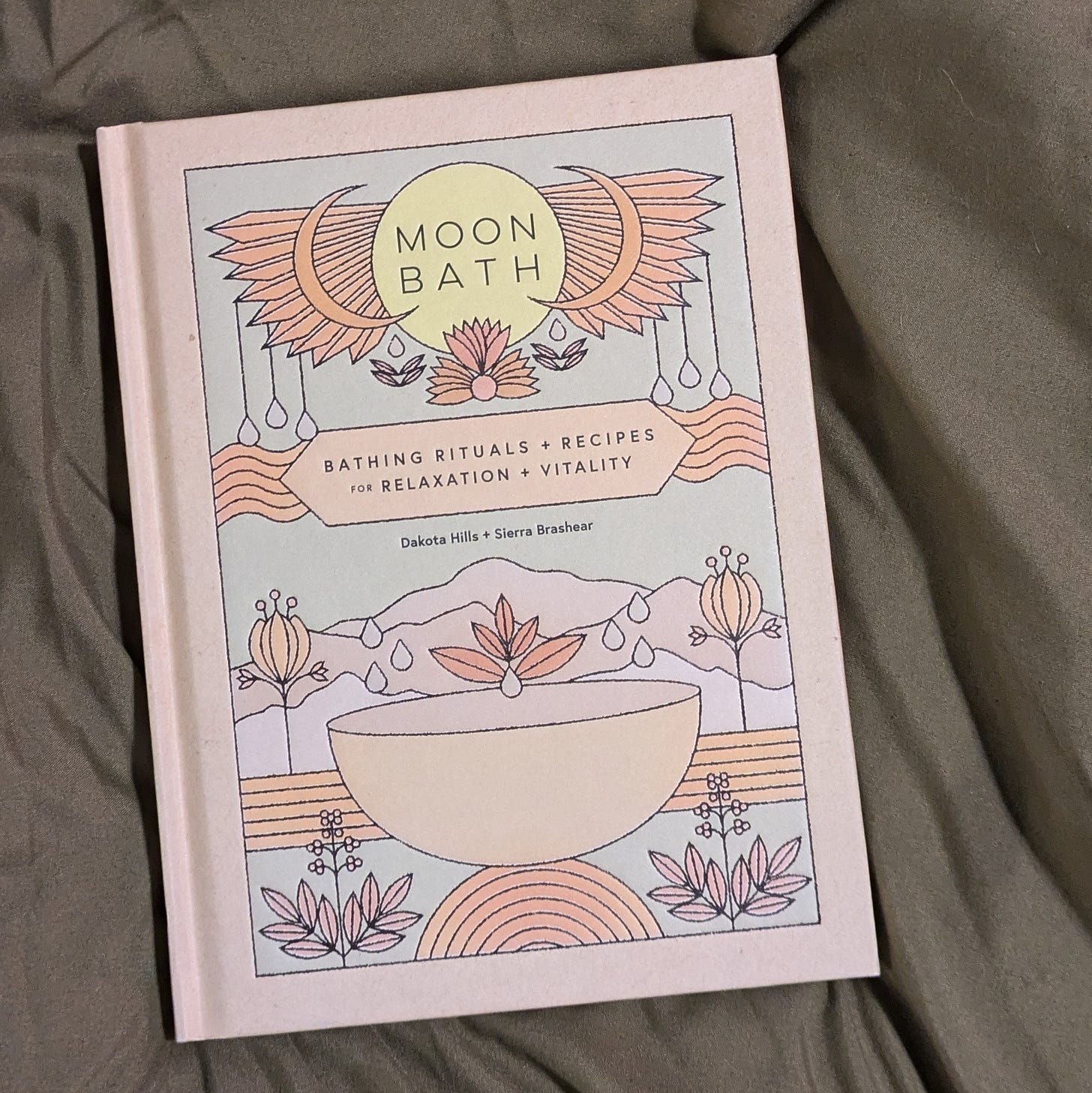







I would like to recommend the Intuitive Girls podcast. They have wonderful breakdowns on all the Sabbats, they speak quite a bit about appropriation, being anti-racist, and doing important work for the collective. I also appreciate their episodes about spiritual teachers/practices that have become problematic or have problematic roots. Throw in some pop culture and it’s like coffee with some cool friends. Also neurodivergent with neurodivergent kids.
Thank you for this awesome list! I would like to add Ezra Rose’s *FYMA: The Lesser Key to the Appropriation of Jewish Magic & Mysticism*. They’ve available on a pay-what-you-want model on their itch.io site.